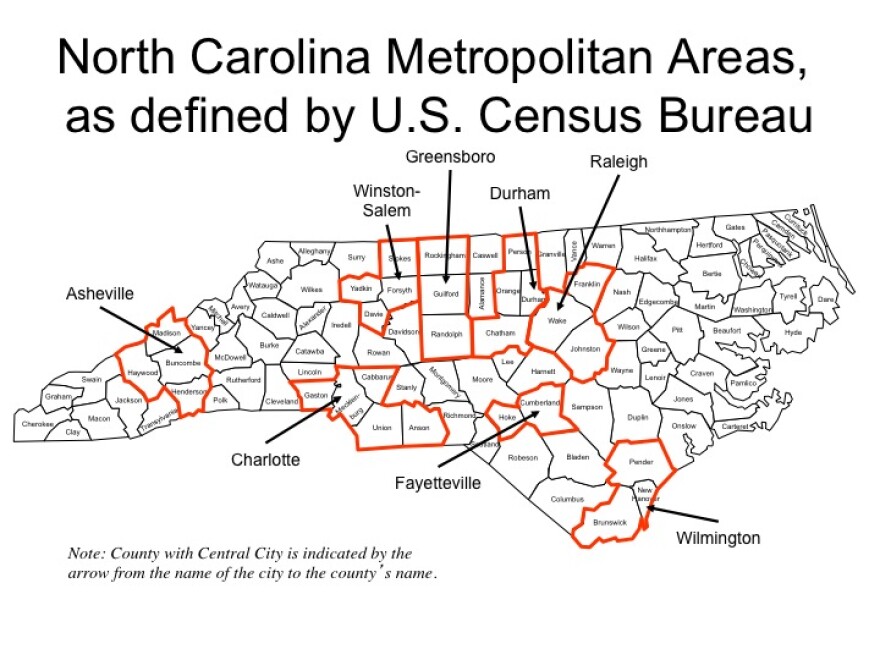With in-person early voting underway in North Carolina, it might be helpful to break down its use in different areas of the state.
According to the U.S. Census Bureau, the state has eight urban counties and 20 suburban counties that make up eight metropolitan areas. The other 72 counties are classified as rural counties.

Within the eight urban counties, 59 percent of the ballots cast were before Election Day, while suburban and rural counties each had 53 percent of their ballots cast during the early voting period.
The counties with the highest percentage of early votes cast were Durham and Lee counties, with 71 percent of all the ballots cast done before Election Day in 2008; Pender and Pasquotank both saw 70 percent of their ballots cast during the in-person absentee period.

Forty-seven counties saw Republican voters cast more than half of their votes before Election Day in 2008.
One urban county, Forsyth, saw 65 percent of all the GOP ballots cast done so during early voting, while suburban Pender County had 69 percent of all the GOP ballots cast early.

But in comparison to unaffiliated and Democratic-registered voters casting ballots, Republicans were decided more “Election Day” voters than early voters.
Fifty-four counties saw unaffiliated voters cast more than half of their votes before Election Day 2008. In 14 of those counties, 60 percent of unaffiliated voters cast their ballots early.

The top two counties where unaffiliated voters cast their ballots early were in the Research Triangle area, with both Orange and Durham County seeing 67 percent of all their registered voters casting ballots early.
The true impact of the ground-game that the Obama campaign waged in 2008 is readily evident in the map of Democratic voters casting early ballots.
In 85 counties, registered Democratic voters cast more than half of their votes before Election Day, with 12 of those counties seeing more than 70 percent of the Democratic ballots cast in 2008.
In three counties — Pasquotank, Lee, and Durham — over three-quarters of the ballots cast by registered Democrats came in the early voting period.

In comparing the three affiliations, 63% of all Democratic ballots came in before the Tuesday election, while 52% of all unaffiliated ballots came in during the early voting period.
A majority of Republican voters, however, waited until Election Day to cast their ballots, with 48% deciding to use the in-person early voting opportunity.
Having seen the power of early voting in 2008, Republicans should learn that it is critical for their voters to turn out during early voting as well and begin banking those votes before Election Day.
While it may be traditional to cast one’s ballot on the Tuesday following the first Monday in November, you may be the only one in the state to do so after this year - which might not be a bad thing after all.


